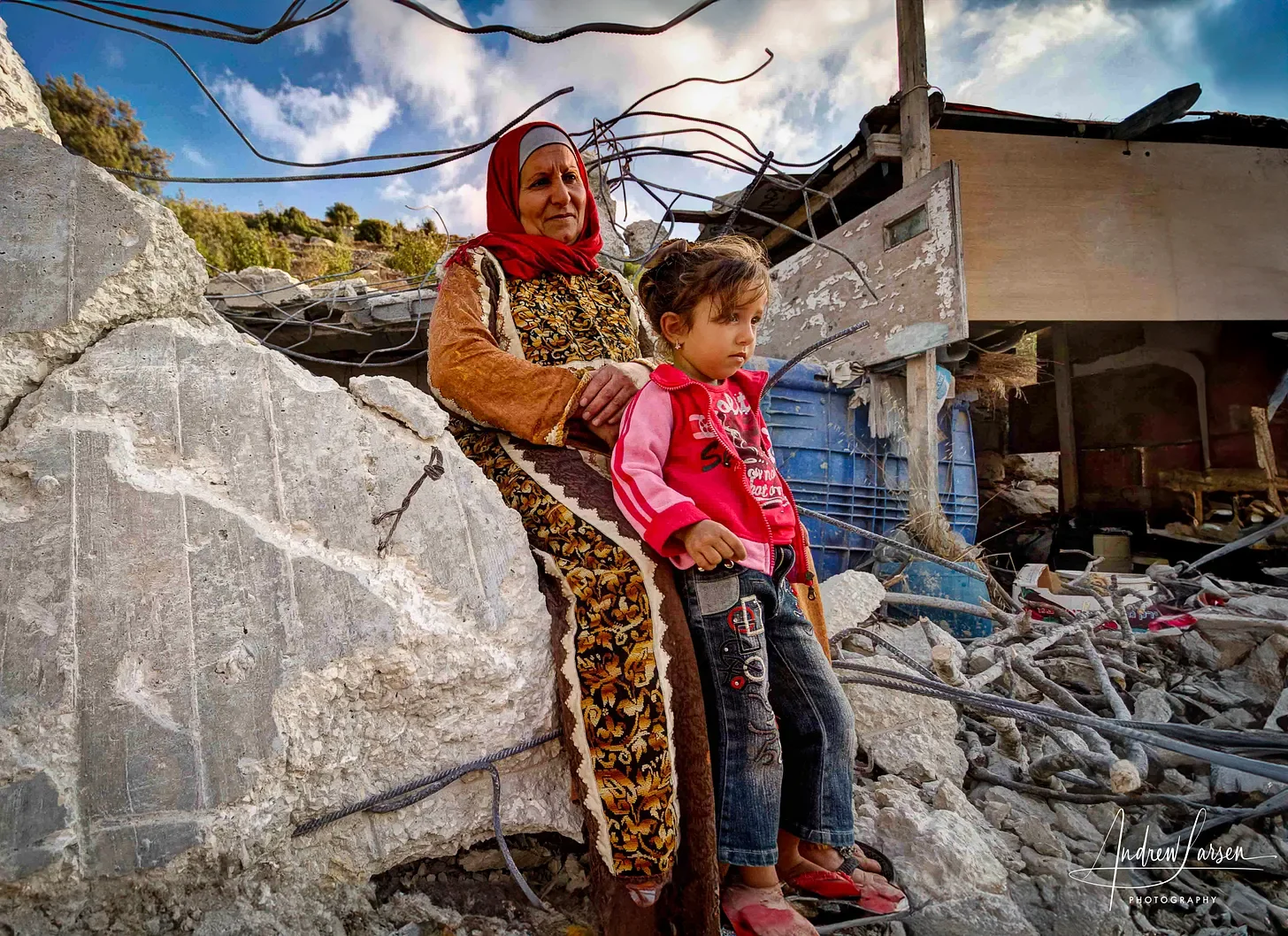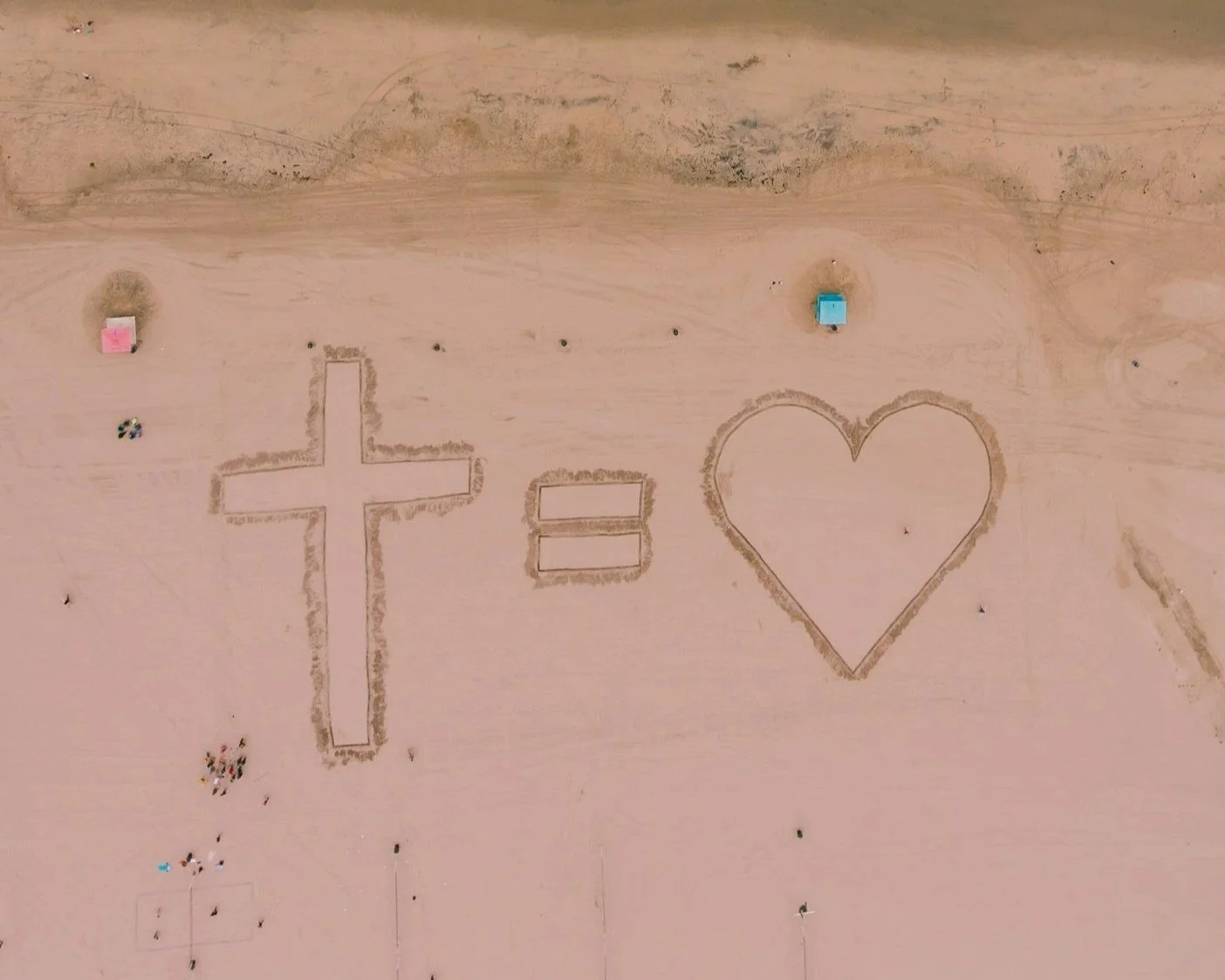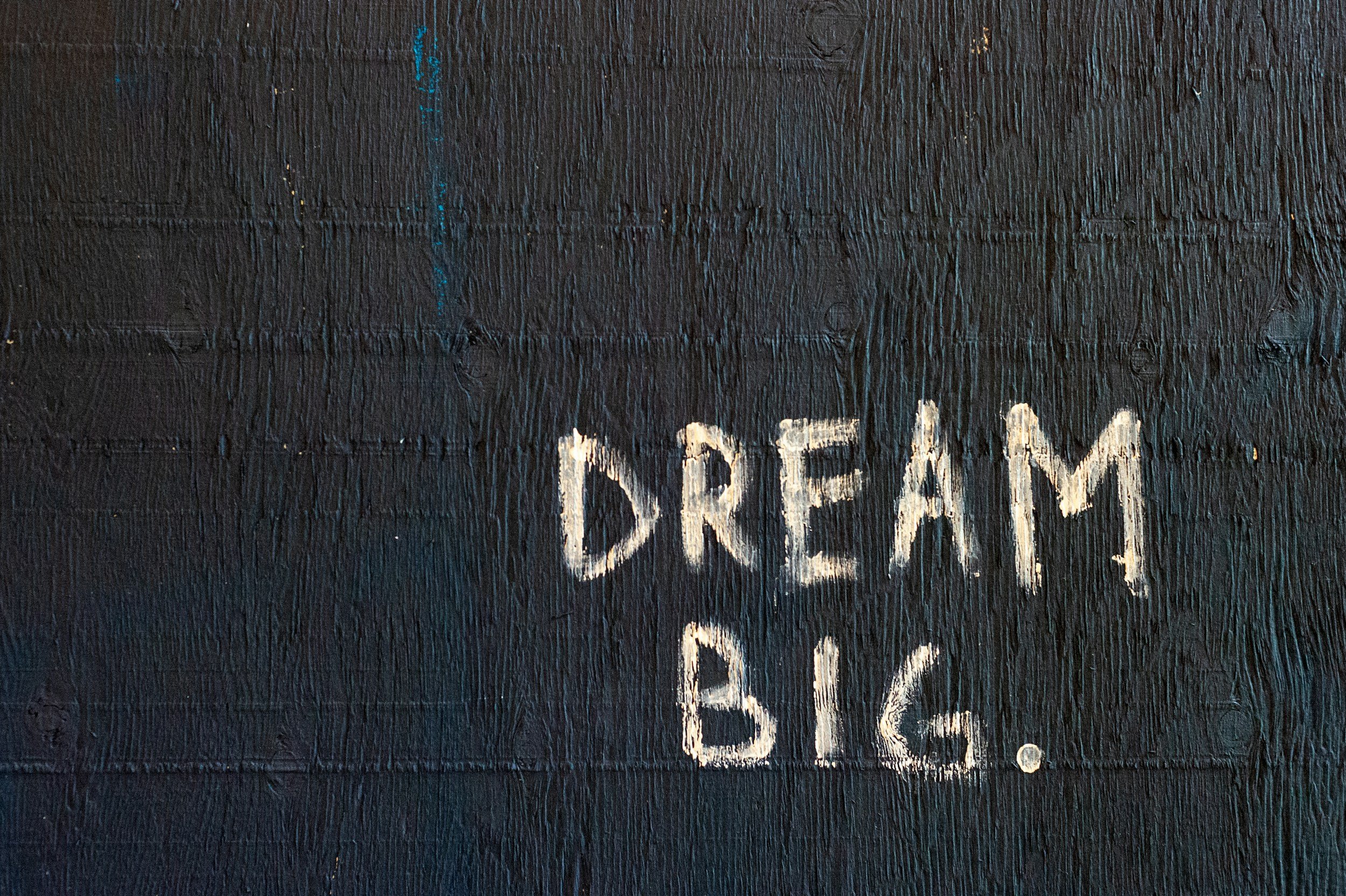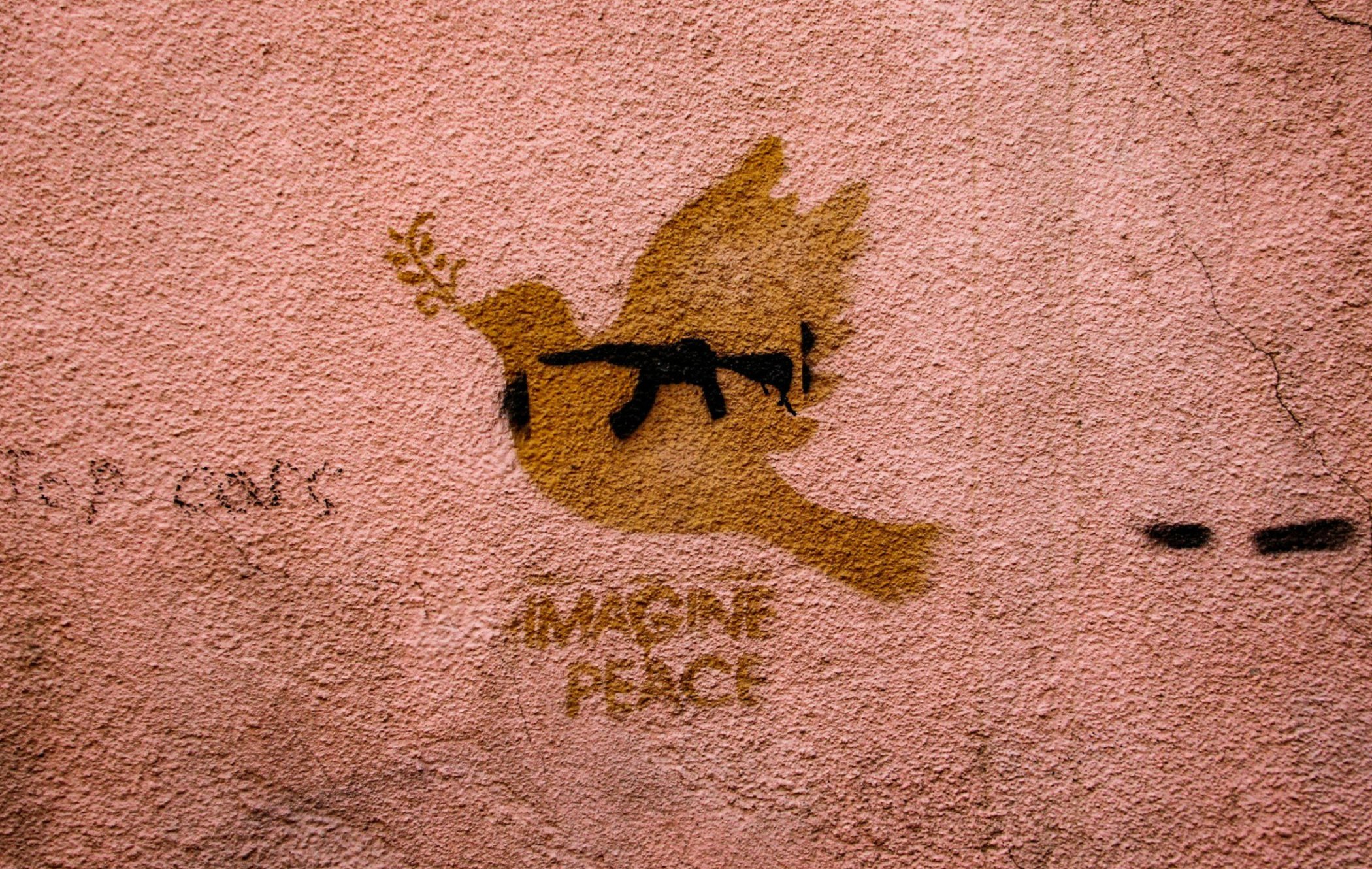The Peacemaker’s Oath
by Andy Larsen
I’ve written these words not as a creed, but as a compass. For years I’ve watched the language of “peace” get hijacked—used to justify silence, to avoid discomfort, to flatten stories of injustice. But true peace is disruptive. It centers the marginalized. It names power.
This oath is shaped by the steadfast witness of my Palestinian friends and the call of Jesus to a bold, nonviolent love that heals what is broken. It is structured chiastically—a chiasm is a literary form found throughout the Bible (e.g., Psalm 23, Philippians 2, the Gospels), where ideas build toward a central turning point, then mirror back out. The midpoint often contains the heart of the message. In my oath, that center is, “I will not look away.” Everything turns on that refusal to avert my gaze.
A short caveat: While I see suffering in many places and grieve deeply for all who are crushed by violence and injustice, I am finite. My heart and work have found focus in Palestine—not because other places do not matter, but because this is the weight I have been given to carry. Palestine has become a symbol of injustice everywhere, and yet it is not merely a symbol. It is real. I cannot carry everything. If I try, I will be buried under the rubble.1 While I believe Christ is there with the crushed, I am not him. I am keenly aware of my finite nature. Especially these days.
Inspired by those who refuse silence, this oath (below) is for all who choose peace with justice.
مستوحى من أولئك الذين يرفضون الصمت، هذا القسم موجه لكل من يختار السلام بالعدالة.
The Peacemaker’s Oath
Peacemaking is not passivity, politeness, or “both sides.”
It is the work of love in public,
of nonviolence in the face of systems that destroy,
of restoring what has been broken.
This oath is for those who are weary of a faith that wounds,
and who long to follow Jesus into a peace that is just, bold, and healing.
As one who follows the way of Jesus,
I will seek to do no harm—
to my neighbor, to the stranger,
to those pushed to the margins,
nor to those who have been wounded by the church.
I will not confuse my culture with God's dream for a just and flourishing world.
I will not weaponize doctrine to avoid compassion.
I will not call peace what is merely silence or avoidance.
I will bear witness with humility.
I acknowledge I do not see the whole.
I will listen before I speak.
I will learn from those whose pain is often ignored.
I will refuse to practice a gospel of omission.
Where injustice hides in plain sight, I will name it.
Where people are unseen, I will look again.
I will not confuse holy language with harmful practice.
I will embody a healing faith—
in belief, in presence, in practice, in love.
I will not offer cheap peace that ignores asymmetry,
that minimizes power, privilege, or systems of oppression.
I will not become a chaplain to empire,
blessing what breaks others.
I will remember that Goliath does not need defending—
that neutrality in the valley is not bravery,
that true peace often stands with the slingshot,
not the sword.
I will name Islamophobia as a spiritual sickness.
I will recognize the pattern of fear that fueled war after war.
I will not mistake political proximity to the modern state of Israel for righteousness,2
nor let prophecy replace humanity.
I will be formed by those on the margins.
I will let their stories shape my understanding of the gospel.
I will not look away.
I will let their stories shape my understanding of the gospel.
I will be formed by those on the margins—
especially my Palestinian friends, whose steadfastness has shaped my own.
I will name Islamophobia as a spiritual sickness.
I will remember Iraq, and the violence we forget too easily.
I will reject eschatologies that treat people like pawns.
I will choose justice over fear.
I will remember that Goliath does not need defending—
that neutrality in the valley is not bravery,
that true peace often stands with the slingshot,
not the sword.
I will name empire wherever it wounds—
in God's name or not.
I will not bless what breaks others.
I will not offer cheap peace that ignores asymmetry,
that minimizes power, privilege, or systems of oppression.
I will embody a healing faith—
in belief, in presence, in practice, in love.
I will not confuse holy language with harmful practice.
Where people are unseen, I will look again.
Where injustice hides in plain sight, I will name it.
I will refuse to practice a gospel of omission.
I will learn from those whose pain is often ignored.
I will listen before I speak.
I acknowledge I do not see the whole.
I will bear witness with humility.
I will not call peace what is merely silence or avoidance.
I will not weaponize doctrine to avoid compassion.
I will not confuse my culture with God's dream for a just and flourishing world.
Nor to those who have been wounded by the church,
to those pushed to the margins, to the stranger, to my neighbor—
I will seek to do no harm.
Let me never forget what my Palestinian friends have taught me:
There is no peace without justice.
لا سلام بدون عدالة
“We know too well that our freedom is incomplete without the freedom of the Palestinians.”
—Nelson Mandela
1 Rev. Dr. Munther Isaac, a Palestinian Christian theologian and pastor, gained significant international attention with his December 2023 sermon titled "Christ in the Rubble: A Liturgy of Lament." Delivered at the Evangelical Lutheran Christmas Church in Bethlehem, this poignant sermon addressed the suffering in Gaza amid ongoing conflicts. Isaac drew parallels between the nativity story and the contemporary plight of Palestinians, suggesting that if Jesus were born today, it would be "under the rubble in Gaza." He criticized the Western world's complicity in the violence, stating, "Silence is complicity, and empty calls for peace without a ceasefire and end to occupation... are all under the banner of complicity." This sermon resonated globally, leading to widespread recognition of Isaac's work and perspectives.
2 The word “Israel” carries multiple meanings—biblically, ethnically, and geopolitically. Here, I refer specifically to the modern nation-state of Israel and the ways Christian Zionist theology often conflates uncritical political support with spiritual faithfulness. This line is not a critique of Jewish identity or heritage, but of theological frameworks that obscure justice and human dignity.
This blog was originally posted at https://substack.com/home/post/p-160366523
Andy and Cari are peacemakers devoted to engaging their “other” as followers of Jesus Christ, believing this is a core characteristic of true disciples of Jesus. Andy uses his camera to build bridges of understanding between groups and to decrease social distance. Andy and Cari spend much time facilitating encounters with their “other” across the country and in the Middle East, helping disparate communities build relational bridges of understanding, and their greatest passion is to hang out with Muslim friends and get people out of the pew, or off their prayer rug as the case may be, and into relationships with their “other.” Learn more about Andy here.





